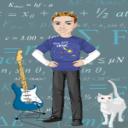Yahoo Answers is shutting down on May 4th, 2021 (Eastern Time) and beginning April 20th, 2021 (Eastern Time) the Yahoo Answers website will be in read-only mode. There will be no changes to other Yahoo properties or services, or your Yahoo account. You can find more information about the Yahoo Answers shutdown and how to download your data on this help page.
Trending News
static discharge from my finger caught radio signal ?
Is this what happened ? It totally freaked me out ... I walked acroos the room to adjust a thermostat ... when my finger touched the control a small static spark occured & for about 1 second I heard what sounded like voices from a radio ... fairly loud too.
I know I heard it ... how could this be.
Serious replies only please.
* the key here is why did it happen the instant of the static discharge .. I am aware of other factors that may cause this but what is the relation to the static forom my finger ?
5 Answers
- tlbs101Lv 71 decade agoFavorite Answer
The thermostat you touched may be protected from ESD (electrostatic discharge) by a capacitor (instead of a TVS or other semiconductor). The capacitor would have been charged by the ESD, and discharged more slowly through protection diodes within the integrated circuits inside the thermostat.
When the protection diodes were biased 'on' they would also act as RF detectors. Other circuitry inside the thermosat may have helped to amplify the strongest AM station (received at your house), and some device inside the thermostat acted as a minature speaker.
This explanation is true (based on my knowledge and experience with similar phenomenon), and as correct as I can think, without actually investigating the thermostat. Further explanation would require me to see the circuit and layout for the thermostat.
.
- DiogenesLv 71 decade ago
My opinion/guess is that the radio is probably microprocessor controlled. When you snapped the arc, the resulting transient disrupted the radio's proper operation. I've seen many modern devices turn themselves "on" due to such a transient. One second later, the firmware which controls the radio (but is not the actual receiver) loops back to the top and discovers the radio isn't supposed to be on because the "power switch" is really off. It then powers down the receiver. This is what comes of the modern approach, where programmable devices can control their power. They're never really "off" because the power is never completely interrupted. The "on/off" button is simply an input to the "smart" circuitry which ultimately controls a power triac, or some such device. My HP all-in-one C3180 printer-fax-scanner works like this and turns itself on or off at random, when the thermostat in a nearby small space heater cycles. Now I leave its plug pulled except when I want to actually print something.
There was a big flap over this very thing because a particular brand of automatic coffee maker would mysteriously turn itself "on" while empty and supposedly "off." Homes burned down and people died. Nobody did a damned thing about it.
Furthermore, this approach cumulatively wastes an enormous amount of power which would be saved if "off" really meant OFF.
- Randy GLv 71 decade ago
Any radio frequency noise from a static discharge should sound like, well, static.
If you are hearing voices, then either: (a) a surge of voltage from the power company just happened to jump the gap across the power switch in your radio, briefly turning it on; (b) your radio was briefly powered for a moment from a strong radio transmitter (it could happen, if someone with a CB radio was passing close by your house at that moment); (c) you are hearing sound from somewhere else echoing off of your speaker; or, (d) you are imaging things.
-----------------------------------
Hey, I like the answer from "thewhiz" below. I didn't think of that one, since I am from the old school of analog radios.
- TK_MLv 51 decade ago
Hi!
Some excelent answers here already. The one thing no-one addressed though, was how can you actually HEAR the radio though - No loudspeaker.
My own suspicion is that the spark itself was able to produce the sound. Not many people realise that sparks can be used as loudspeakers. They are actually supposed to make very good ones, since there is not the inertial of the cone to "color" the tone of the output.
Interesting observation you made!
Source(s): http://rds.yahoo.com/_ylt=A0geu.pNoORF7TkB7QVXNyoA... (PDF Document) - How do you think about the answers? You can sign in to vote the answer.






